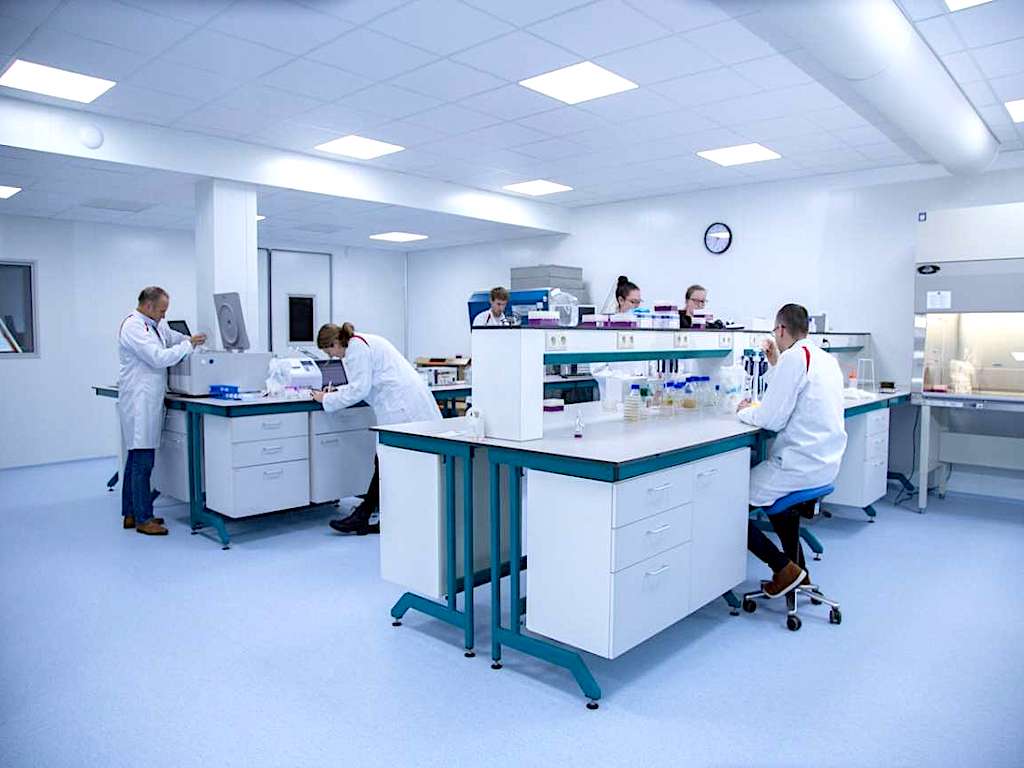Dutch Fermentation Startup The Protein Brewery Secures US$26M Series A To Scale-Up Animal-Free Ingredients
3 Mins Read
The Protein Brewery, a food tech harnessing microbial fermentation to develop alternative protein ingredients, has just closed a €22 million (US$26 million) Series A funding round. Founded this year, the startup has developed its flagship product Fermotein, a protein-rich versatile ingredient that can be used to make a range of animal-free alternative foods, which the company hopes to scale-up and commercialise with the new capital.
The Protein Brewery’s US$26 million Series A round was led by Copenhagen-based life sciences investor Novo Holdings, with participation from alternative protein-focused VCs Roquette Ventures and Unovis Asset Management. The Breda-headquartered startup says it will use the financing for R&D, cover its operational costs and scale-up production of Fermotein.
Fermotein was developed by the startup, which emerged in January this year as a demerger of industrial biotech BioscienZ BV, and is a food ingredient that boasts a similar protein content to conventional animal meat. It is made from the company’s proprietary fungi, which undergoes a cost-effective brewing process, to result in a high-grade product that has one of the lowest environmental footprint of all proteins, both animal and plant-based.
The financial support and domain expertise of our investors will help us take the next important step and move towards the realisation of a pilot plant, demonstrating the process, the properties and benefits of our innovative and nutritious food ingredient.
Wim de Laat, Founder of The Protein Brewery
According to The Protein Brewery, Fermotein requires only 1% of land, 5% of water and produces 3% of the carbon emissions compared to that of traditional beef, and can be produced using a large variety of water-efficient and allergen-free crops such as sugar beets, cassava, corn and potatoes. This means that it can be manufactured locally, depending on the crops that are regionally abundant, further reducing both the cost of production and sustainability.
“Providing food for a population of 10 billion people by 2050 demands alternative scenarios,” explains Wim de Laat, founder of The Protein Brewery. “The financial support and domain expertise of our investors will help us take the next important step and move towards the realisation of a pilot plant, demonstrating the process, the properties and benefits of our innovative and nutritious food ingredient.”
Fermotein has a strong nutrition and sustainability profile and can be applicable to a wide range of high-demand products. With it, the company is well positioned to enter a €30 billion-plus market for alternative proteins.
Thomas Grotkjær, Principal at Novo Holdings
Because of its novelty, Fermotein has yet to be approved by regulators for its application as a food ingredient, which the company says ranges from alternative meats to bread, cereals, pastas and protein bars and drinks. Having already kickstarted the application process to launch in the U.S. and Europe, the company hopes to be able to commercialise Fermotein in 2021 and 2022 in the two respective markets, positioning the startup as among the early competitors within the nascent but fast-growing fermentation sector.
“The Protein Brewery meets the criteria investors seek in this space: the state-of-the-art quality, which is superior to all current options in the marketplace,” said Thomas Grotkjær, principal at Novo Holdings. “Fermotein has a strong nutrition and sustainability profile and can be applicable to a wide range of high-demand products. With it, the company is well positioned to enter a €30 billion [US$35.7 billion]-plus market for alternative proteins.”
Lead image courtesy of The Protein Brewery.




